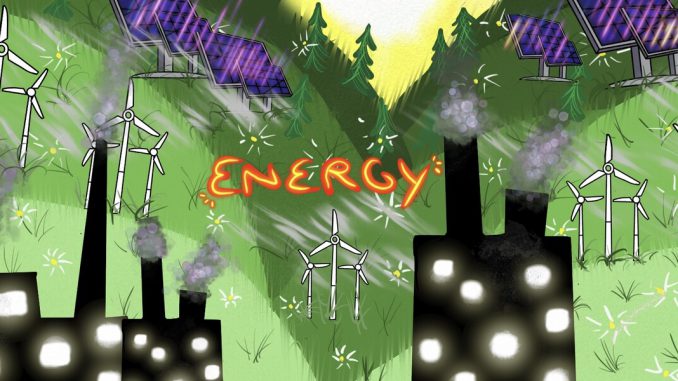
We are living in very dramatic times, with many global challenges that seem to be beyond our control. As individuals we ask what effect these challenges will have?
Some challenges have a simplistic effect and others are more complex. The challenge of energy is on everybody’s mind as I write this.
Energy is one of the more complex challenges that the war in Ukraine has brought to our attention. It has given us a glimpse into our children’s future by showing us what a world looks like with less energy, not zero energy, just less energy.
Some believe we have about 7 decades of energy left if energy is managed properly. The management of energy will include the reduction and more efficient use of it throughout the world. Therefore, the temporary measure being discussed of reducing the European Union’s consumption by 15% during the current crises seems logical for the short term. However, this is likely to become the ‘norm’ as energy becomes a more managed resource around the world.
As more developing nations become prosperous this will continue to become a huge challenge to manage this resource.
Around 80% of the world’s energy is produced by the burning of fossil fuel that is used for everything from running cars, heating, manufacturing, farming, flying, seafaring and building homes!
And the planet requires 10 million years to replace each single barrel of oil we use.
So what does this have to do with house prices? Simply, if energy costs go up, each persons affordability goes down and therefore house prices also go down.
Simples…..
Not quite. House prices are a little more complex than this, as life is itself.
The reason for writing this blog is that I have had a number of people expecting, and asking, when house prices will decrease. They expect that we will see a reduction from 2-3% to 10% due to the energy crisis.
So why are most of the industry forecasts only expecting a stabilising of house prices with predictions showing a 1-2% re-adjustment downwards over the next year? (latest Savills research https://www.savills.co.uk/research_articles/229130/331049-0)
Whilst, at the same time as this, forecast the OFGEM price cap was rising rapidly on a quarterly basis (until the two year cap was announced by Liz Truss).
One of the main reasons is, like energy, we need shelter as a primary need to survive. We need cement, mortar, bricks, timber, steel and machines to build houses. Each and every one of these items requires an enormous amount of energy to produce / build. So as the price of energy increases so does the price of producing and building a home.
Therefore…..
Although individuals disposable income is reducing, at the same time the energy requirements required to build a home are rising. So the price of a home, which we have seen rise rapidly over the last 24 months, starts to stabilise in the current market rather than fall due to these competing pressures.
Due to the increase in energy prices we may well see the amount of new properties built next year drop, once again supporting the value of current homes available for sale for the ever increasing population in the UK.
There are many industries that include commodities, services and luxuries that will be damaged by the increased price of energy and the reduction in its availability however, like food, we may find the price of shelter increase rather than decrease during the next 7 decades due its necessity for a comfortable, healthy life, despite the pressure on disposable incomes.
I’m interested to know your thoughts on this subject?
Mike Matthews
Tortoise Property
01733 592020
